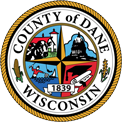
Many defendants have substance abuse problems. As a result, the courts have offered a program to provide treatment and intervention. Such intervention is best achieved when offenders initially enter the criminal justice system. Drug Court offers educational and employment linkages so defendants will possess the ability to become productive members of the community. Participants are not convicted or sentenced in Drug Court and there are no trials. Eligible participants are deferred from criminal prosecution.
Drug Court focuses on non-violent offenders. Cases are referred by an Assistant District Attorney (ADA). Defendants voluntarily agree to participate and receive drug treatment services instead of a sentence. The ADA specifies the length of time in the program. Defendants appear regularly before the judge as a group, who reviews each case with treatment providers and ADA, and discusses the offender’s progress directly with the offender in front of the group. The judge may order the treatment to be modified or may order sanctions for violating treatment requirements (i.e., several days in jail). If an offender successfully completes treatment by staying off drugs, the ADA will move to reduce or dismiss the charges as promised in the contract.
The Dane County Legal Resource Center has a Drug Court Collection available in their library. There is also a resource guide listing community or web resources on their website.